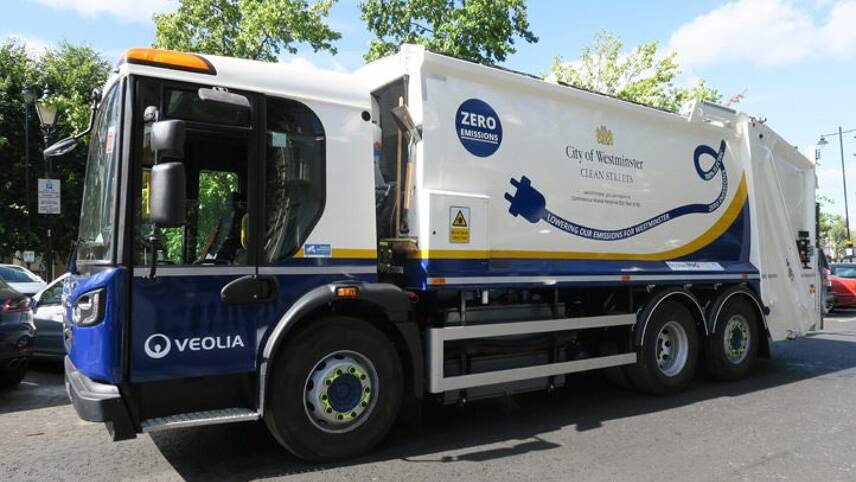Register for free and continue reading
Join our growing army of changemakers and get unlimited access to our premium content

The project is being backed by Innovate UK
In partnership with Westminster City Council, Veolia is trialling the two eRCVs as part of a two-year trial. Two 26-tonne diesel vehicles that were set to be scrapped have been upcycled by adding new electric engines.
Veolia’s executive vice president for Veolia UK and Ireland, Gavin Graveson, said: “This project highlights Veolia’s ongoing investment in clean air solutions in London and across the UK.
“By converting existing vehicles and trialling alternative fleet solutions with forward-thinking local authority partners like Westminster City Council, we are not only preserving resources but are lowering emissions and creating greener cities.”
Unlike diesel models, the electric engines do not run or release power when the vehicle is idling. Veolia also claims that the models now exceed the requirements of the Ultra Low Emissions Zone in central London.
The trial forms part of the Council’s long-term plan to improve air quality by increasing the number of electric vehicles (EVs) on the city streets.
The project is being backed by Innovate UK, which supported the 18-month upcycling process and will now support the two-year trial. An additional two RCVs have also been converted for trials in Sheffield.
The Sheffield bin lorries will be charged with power derived from waste collected by the company. The RCVs will initially be charged with grid electricity, but the company will then begin using energy generated from non-recyclable household waste – a move claimed to be first of its kind in the waste management sector.
The 26-tonne RCVs will be based in Sheffield and charged with power generated at the city’s Energy Recovery Facility (ERF), where 28 tonnes of non-recyclable household waste is incinerated every hour.
Cllr Tim Mitchell, Westminster City Council’s Deputy Leader, said: “Tackling pollution in London is an ongoing battle, and this pilot is just one of the many ways we’re making our daily operations cleaner and greener. I am proud to see electric vehicle innovation like this out on the streets of Westminster, keeping our borough clean without sacrificing air quality.”
Sweeping success
In July 2018, Veolia purchased five fully electric road sweepers in a bid to cut its annual carbon emissions by 78 tonnes – the equivalent of removing 33 cars from the road. The vehicles, which were the first electric street cleaning vehicles purchased by Veolia, were rolled out across the company’s household waste collection routes in Lambeth.
Additionally, Veolia has added two fully electric vans to its operations in Brent and invested in three plug-in hybrid electric cage vehicles, used by workers who clean up parks in the North London borough.
Last summer, UK waste management firm Grundon launched a low-emission hydrogen and diesel dual-fuel waste collection vehicle, which it claims was the first to be used in Britain’s commercial waste industry. The heavy goods vehicle was retrofitted with a 10kg hydrogen unit in a move which cost £177,000 and was described by Grundon group logistics manager John Stephens as “a significant investment”.
The truck is fully operational and is collecting waste from homes in London as part of a trial of the dual-fuel technology. If the trial produces adequate carbon reductions, Grundon will look to invest further and retrofit more of its fleet.
Matt Mace


Please login or Register to leave a comment.